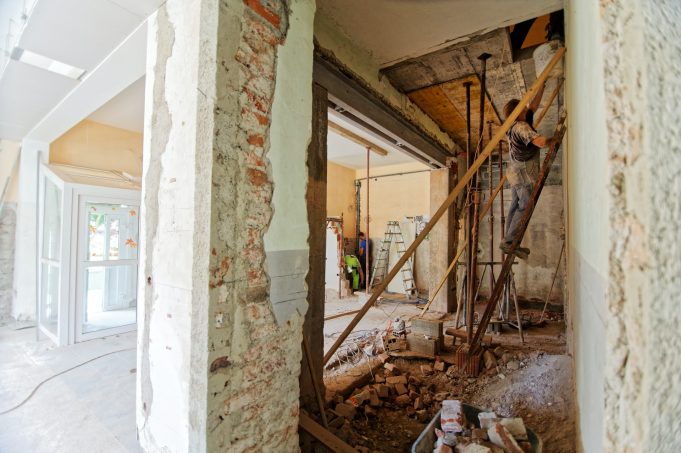For most homeowners, the joy of having a home makeover is so overwhelming, they almost forget about the need to involve their insurer.
On the other hand, some others are asking questions such as “at what point should I let my insurer know that I’m having a home renovation?”
Irrespective of the category you fall into, it’s worthy of note that if you are doing a full home renovation that requires you to move out for some time, then you should tell your insurer. However, in a case whereby you’re doing a little touch up while at home, you can skip the part of informing your insurance company.
That said, this guide will unravel a lot more about home renovation and insurance. More reason why you’ll need to continue reading to find out for yourself.
Small Renovations and Home Insurance
Have you noticed that sometimes, your mind eye is already envisioning what your home interior could look like after a renovation?
It happens to almost everyone, and where you are not sure about the impact of your proposed renovation on your premium, it’s only a matter of finding more information from your home insurer before you go on to implement your renovation plans.
A home renovation, which is also known as; a home makeover, is the process of making improvements to an existing building or house. It also means to make over the structure from a state of despair and restore it to a good state of repair. It can be a thrilling and tedious experience, but it’s mostly worth it in the end.
As a homeowner, your home insurance provides you with the financial protection that you require in the event of situations that could cause you to lose your property.
Accidents like fire, flood, or natural disasters do not always give a warning signal; hence, informing your insurer about your plans on a home renovation is so important.
It’s great to envision and work with your team of professionals in upgrading the looks of your home, but it’s far more important; to let your insurance company know what you have in mind. Failure to do so could mean that if, for example, you convert your attic into an additional bed space, it’ll cost more to rebuild should trouble strike.
Similarly, are you upgrading your central heating system? Let your insurance company know about it, it could end up lowering or adding to your insurance premium, but it’s a more secure step to take.
Home Insurance And DIY Home Makeover
Are you planning on installing new lights or even changing the tiles in your bathroom and kitchen? It’s easy to call in anyone to have it fixed, especially when you are not up to the task.
However, should the tradesman do a poor job, it would not be covered, under your home insurance, because you should have made proper finding before inviting anyone into your home.
That said, keeping your home clean and maintained could also involve fixing clogged or broken pipes and other DIY simple fixes, and for these, you would not need to inform your insurance company.
Large Renovations And Home Insurance
Since your home insurance covers your home structures, the building, and items within your house, it means that when your home is undergoing a major renovation, your home insurance will be affected.
It’s not ideal; to plan a major renovation without informing your insurer. Already, all Insurance companies have an occupancy clause that clearly shows that if your house is left unoccupied within 35 to 40 consecutive days, a large part of your insurance cover will become invalid. In essence, it’s like throwing money into the wind because your insurance would no longer be able to protect you as it should.
So, when you are doing a major home renovation that requires moving out for some time, it’s safer to keep your home insurer updated every step of the way.
Conclusion
There are lots of benefits to keeping your insurance provider abreast of the repairs and changes you’d like to make in your home. It’s your home anyway and an asset you can pass down to generations after you, should you decide to do so. Hence, renovation is a way to keep it properly maintained and up to standard.
Get as much advice as you can from your insurer and be sincere about the changes you want to make in your home. It’s always worth it in the end, and with this simple decision, you can be sure that you’ll have the support of your insurer, should the unexpected, like a fire outbreak, happen in your house.














